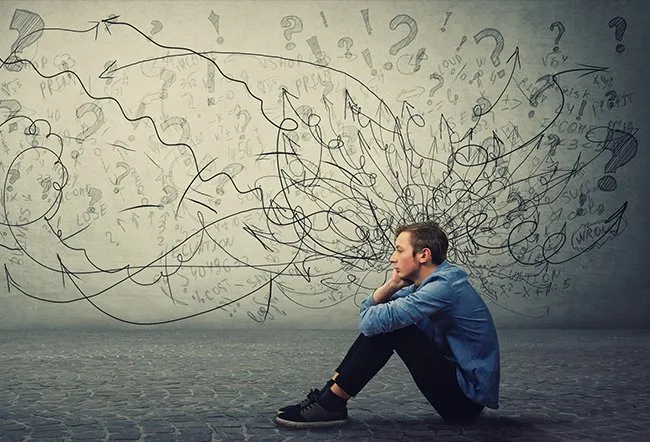
Rejection sensitivity dysphoria (RSD) is a term coined by William Dodson, an American Doctor who works in prescribing medicines for ADHD. Whilst that may be contentious because he benefits financially from prescribing drugs for ADHD, RSD is something that many people with ADHD and other neurodivergences talk about. Dodson describes RSD as:
“Rejection sensitive dysphoria (RSD) is extreme emotional sensitivity and pain triggered by the perception that a person has been rejected or criticized by important people in their life. It may also be triggered by a sense of falling short—failing to meet their own high standards or others’ expectations.”
Dr William Dodson
RSD can look like this (my own examples):
- Overthinking how I might have offended another person. Before I began using mindfulness to centre myself, I would have let this kind of thought go round and round, without checking it out with the other person. Now, I reach out and check. Often, they haven’t clocked the thing at all as offensive.
- Feeling left out, even after declining to attend something. When I see photos of events I decided not to attend and everyone looks like they’re having a brilliant time, I feel excluded. It feels really painful, like I’m not worthy. I soothe the younger part of me that is feeling left out by talking gently, reminding her that we decided not to go, and that we have plenty of fun things planned.
- If a friend says she’s going to call the next day but doesn’t, I might then think she’s distancing herself from me and conjure up all sorts of past behaviours that might be evidence for that. Again, if I don’t check it out with her, then it could spiral out of control and I might then back away from her because the pain of being rejected is too much. The truth of the matter is often that she had a bunch of stuff going on and couldn’t call.
These are just three personal examples. There are many more. The essence is that I’m quick to assume that I’m at fault in some way and I’m being rejected because of that. So many neurodivergent people experience RSD in this way. It’s incredibly painful, if it’s allowed to spiral out of control and many people are not aware of how to stop that spiral so it can end in suicidal thoughts and self-harming. Before I share what can help to stop RSD, let’s look at where it comes from.
Where does rejection sensitivity come from?
In a 2007 article on ‘interpersonal rejection sensitivity’, Linda Stafford suggests it comes from “early childhood experiences that condition the individual to anticipate rebuff not only from family members, but also from peers.” Although abusive or neglectful parents may create the conditions for rejection sensitivity, it can also come from more subtle means, “such as being emotionally unavailable to the child.”
Repeated experiences of rejection can lead to the child internalising rejection as a filter they see the world through, which means they expect, and look for, rejection. Stafford describes how family members of those who are sensitive to rejection might feel angry and turn away from supporting them. This then feeds the rejection sensitivity further.
Types of behaviour associated with rejection sensitivity are “too readily becoming hostile, socially withdrawn, or over-accommodating of others” (Berensen et al, 2009). All of this can lead to isolation or burn out. RSD is entangled with masking and ableism, and I’ll write about those in other articles. Let’s look at some ways of dealing with RSD.
Ways of Dealing with RSD
- Therapy with a neurodivergent therapist who gets it. They can help you understand your rejection sensitivity, where it comes from, and help you to create a self-compassion practice.
- Journal. Write out the situation and then ask yourself what might be going on for the other person. Try to get into a non-judgemental frame of mind as if you were a neutral friend to yourself and the other person. What might you say to each of you as a neutral friend? Write the outcome you would like. What steps would you need to take to get to that outcome?
- Check out whether you are being rejected / criticised. Saying to the other person, “I feel like I’m being rejected. Am I?” gives time to pause and breathe so you stop getting caught up in your personal narrative. If they are criticising you, is it valid? If not, it might be time to leave their company. If it is, what steps might you like to take? One of those might be to reassure yourself that you’re a human being and it’s okay to make mistakes.
There are many more ways of dealing with RSD than the three I’ve suggested here. When I work with clients, I prefer to help them find their own ways rather than suggest mine to them. What might work for you? Who do you know who deals with rejection really well? How do they do that? Could you model it?
If you’d like to read more about RSD, I’ve listed the resources I’ve used in this article at the bottom. If you’d like to have a chat with me about your RSD, feel free to reach out.
How ADHD Ignites Rejection Sensitive Dysphoria
INTERPERSONAL REJECTION SENSITIVITY: TOWARD EXPLORATION OF A CONSTRUCT
Rejection sensitivity and disruption of attention by social threat cues
